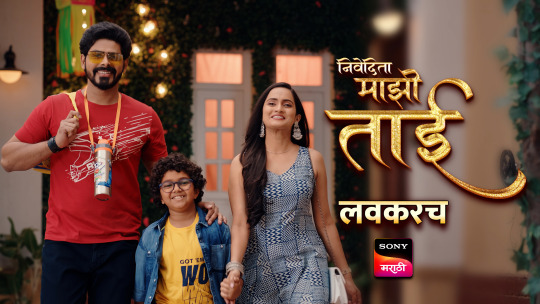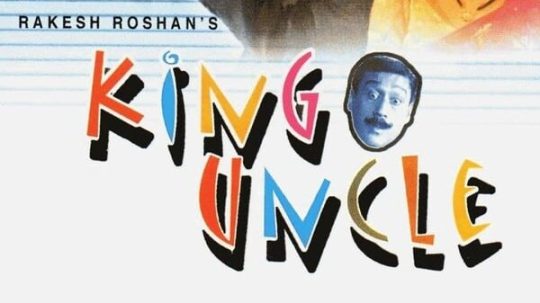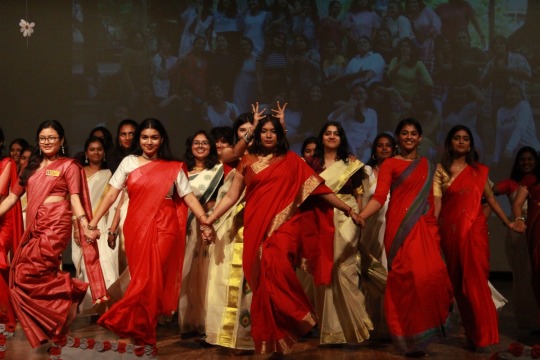#nivedita
Text
Nivedita Apne chacha se baat kar rahi hai 🤩🤩
0 notes
Text
Discover Luminance – Wedding Haute Couture 2023 | Nivedita
Classic and modern, revel in the best of both worlds with our latest Wedding Haute Couture collection. The House’s artisanal acumen intertwines with rich fabrics and timeless silhouettes to make up modern heirlooms for the new-age bride. he pastel lehengas in Luminance collection play to tradition with their designs, while intricate zardozi embroidery, crystal and Japanese glass bead work add decadence.
#nivedita#niveditacouture#festivecouture#niveditasaboocouture#thehouseofnivedita#indiancouturedesigner#fashion#luxury#womenswear#groomswear#design#couture#luxurylifestyle#handcrafted#wedding#bride#lehenga#blouse#bralette#weddinglehenga
1 note
·
View note
Quote
She is all beauty —
this woman nude and terrible and black,
who tells the name of God
on the skulls of the dead,
who creates the bloodshed on which demons fatten,
who slays rejoicing and repents not,
and blesses him only that lies crushed beneath Her feet.
Her mass of black hair
flows behind Her like the wind,
or like time, ‘the drift and passage of things.’
She is blue almost to blackness, like a mighty shadow,
and bare like the dread realities of life and death.
Sister Nivedita, Kali the Mother
37 notes
·
View notes
Text
Jhumpa Lahiri’s The Lowland (2013) and Neel Mukherjee’s The Lives of Others (2014), that embody this tendency: a universalization that, in fact, neither comprehends nor sympathizes with the social and political contradictions in contemporary South Asia.
Both novels place at the center of their narrative what is commonly referred to as the Naxalite movement, which began in 1967 with a peasant uprising in Naxalbari, a village in northern Bengal near the Nepal border. Initially led by armed members of the Communist Party of India (Marxist), the movement later broke away to form the Communist Party of India (Marxist-Leninist) and has largely followed Mao’s doctrine of “people’s war.” Begun in the countryside, it spread to the cities during the 1970s, attracting significant numbers of educated, unemployed youth energized by the peasants’ struggle for rights and recognition. A brutal counteroffensive, empowered by draconian anti-terrorist laws, brought the first phase of the movement to an end. In both novels, the central figures are Naxalite militants. Their immersion in the movement, together with the fallout of their decisions on the lives of those around them, largely propels the narrative in both.
By placing an emancipatory movement at the core of their novels, Lahiri and Mukherjee also place the politics of resistance front and center. And yet, even though both novels are structured by the political actions of key characters, neither author is able to muster an empathetic understanding of their characters’ actions. Moreover, the very idea of a life of struggle is made to appear at best quaint, at worst objectionable. In both novels, politics remains something imposed on the characters, an external, impinging force—but never a source of self-actualization. Instead it serves as a source of dislocation, self-doubt, broken relationships and disrupted lives. Each novel exposes its author’s inability to perceive the political as an intrinsic aspect of the individual being.
Hence, while each of the authors locates a politics of resistance at their novel’s center and views that politics through a universalizing prism, neither can fathom its attraction. Such an approach to emancipatory politics reinforces the neoliberal view that all resistance is doomed because there are no possible alternatives to the current order. And although both authors seem to want to escape an ethos where resistance is viewed as futile, neither is able to do so. As a result, neither is able to engage, much less express, the internal lives of their own central characters. Because of this, they remain limited, not just as post-colonial novels but simply as novels.
The World In a Grain of Sand, Nivedita Majumdar (emphasis mine)
#postcolonial literature#litcrit#the central narrative of jhumpa lahiri's lowland is... killing cops is bad and will bring emotional vengeance upon you wtf#it makes her other novels look really inoffensive tbh#nivedita majumdar#diaspora lit
92 notes
·
View notes
Text

Nivedita Pathak
33 notes
·
View notes
Note
Hiii!! I just wanted to tell you that I completed setting up my notion! It took some (a lot) of time but it turned exactly how I wanted it so that's a win!
Thanks for those videos, they were really helpful! <33
From,
Nivedita (that's my name)
I AM SO HAPPY FOR YOU!! Send me pictures??
I am glad I was of some help🩵
THAT IS SUCH A PRETTY NAME BRO🥹🩵
4 notes
·
View notes
Text
Summer blooms.


Artist- Nivedita Pande
2 notes
·
View notes
Text
Nostalgia, a Sweet Reminisce and Other Poems
Nostalgia, a Sweet Reminisce and Other Poems
By Nivedita Krishna
Nostalgia, a Sweet Reminisce
As I walked across that lonely desolate road,
No it was not a hill station filled with eternal solitude of nature,
It was the same crowded route that leaded to the same destination each day,
Those familiar faces were strange acquaintances
Who exchanged greetings everyday,
With a warm affectionate smile,
The questions were same, how's life?
And…
View On WordPress
#academy of the heart and mind#academyoftheheartandmind#love#Nivedita Krishna#Nostalgia A sweet reminisce#Poem#poems#poet#Poetry#Respect In His Eyes#The Human Soul
1 note
·
View note
Text
The Vaccine War
The Vaccine War (2023)
#VivekAgnihotri #AnupamKher #NiveditaBhattacharya #RaimaSen #GirijaOak #NanaPatekar
Mehr auf:
Jahr: 2023
Genre: Drama / Thriller
Regie: Vivek Agnihotri
Hauptrollen: Anupam Kher, Nivedita Bhattacharya, Raima Sen, Girija Oak, Nana Patekar, Pallavi Joshi, Sapthami Gowda, Mohan Kapur, Richard Bhakti Klein, Divya Seth Shah, Sougata Ghosh …
Filmbeschreibung: Behandelt den Kampf Indiens gegen Covid-19 und die Bemühungen der medizinischen Abteilung, die globale Krise zu überwinden…

View On WordPress
0 notes
Text
नवी मालिका "निवेदिता माझी ताई" लवकरच सोनी मराठी वाहिनीवर
नवी कोरी जोडी प्रेक्षकांच्या भेटीला !
सोनी मराठी वाहिनी नेहमीच निरनिराळ्या विषयांच्या मालिका प्रेक्षकांसाठी घेऊन येत असते. आता या मनोरंजनाच्या पेटाऱ्यातून आण���ी एक नवी मालिका लवकरच प्रेक्षकांच्या भेटीला येते आहे. “निवेदिता माझी ताई” असे या मालिकेचे नाव असून या मालिकेतून एक फ्रेश जोडी प्रेक्षकांना पाहायला मिळणार आहे. अशोक फळदेसाई आणि एतशा संझगिरी ही जोडी या नव्या मालिकेतून आपल्या भेटीस येते आहे.…

View On WordPress
#Aetashaa Sansgiri#Ashok Phal Dessai#Nivedita Mazi Tai#Sony Marathi#अशोक फळदेसाई#एतशा संझगिरी#नवी मालिका निवेदिता माझी ताई लवकरच सोनी मराठी वाहिनीवर#निवेदिता माझी ताई#सोनी मराठी
0 notes
Text
Sinopsis Lengkap Film King Uncle (1993)
Sinopsis King Uncle (1993) – Ashok Bansal memiliki masa kecil yang traumatis yang mengajarkannya bahwa uang adalah hal yang paling penting bagi manusia, bahkan lebih dari anak-anak mereka. Ashok mulai membenci orang miskin & mulai bekerja keras untuk keluar dari kemiskinan, dengan mengorbankan keluarganya sendiri. Namun, kehidupan Ashok berubah selamanya saat Munna memasuki hidupnya.
Detail…

View On WordPress
#Anu Agarwal#Comedy#Dalip Tahil#Deven Verma#Dinesh Hingoo#Family#film India#Jackie Shroff#Nagma#Nivedita Joshi#Paresh Rawal#Pooja Ruparel#Shah Rukh Khan#Sushmita Mukherjee
0 notes
Text
'The Vaccine War' Review and Analysis: Potential of a Great Medical Drama is Cut Short by Somewhat Less Focused Third Act
Agnihotri, to some extent, treats the screenplay as an underdog story. Thus, there are unforeseen and formidable challenges, both natural and political. However, the director, at times, cleverly deviates from the underdog template...
Just before the intermission, in Vivek Agnihotri’s ‘The Vaccine War’, on a white board with a black color marker, a prominent scientist writes “Only science can win this war.” Immediately after this ‘Nasadiya Sukta’ is heard in the background. On one hand this signifies and symbolizes confluence of scientific aptitude and spirituality and on the other hand it serves another purpose. This…

View On WordPress
#2023#Anupam Kher#Bio Science Film#Girija Oak#Nana Patekar#Nivedita Bhattacharya#Pallavi Joshi#Raima Sen#Sapthami Gowda#The Vaccine War#True Events#Vivek Ranjan Agnihotri
0 notes
Text
Our Story : The Grace : Praising Youth, Serving Society with RaCJNC
JANE MIRIAM SABU
Jyoti Nivas College Autonomous celebrated the 40th Rotaract Installation Ceremony on 15 September in the Jyoti Auditorium for the newly elected Board of Directors (BoD) and core members of the Rotaract Club of JNC.
The event was called ‘The Grace’, and was announced through a dance and a banner drop a day earlier. Among the dignitaries were Dr Sr Mary Louisa Sebastian, Sr…

View On WordPress
#Abhiri Ghatge#Amita Ponappa#Amrutha#Arjumand#Athira#Bhoomika#Grace#Jahnavi Sahabani#Jane Miriam Sabu#Leisha#Madeeha#nina#Nivedita S Nair#Prajwala#S V Samvardhini#Saloni#Sangeetha#Sania#Sanskriti#Sonu#Varsha Vivek#Yashaswini S
0 notes
Text

#bombay my beloved#tv shows#amazon prime#shujaat saudagar#kay kay menon#kritika kamra#nivedita bhattacharya#illustration#vintage art#alternative movie posters
1 note
·
View note
Text
Feminist Perspectives on the ban on sex selective abortions in India
Most women in India have no control over the conditions in which they have sex and often, abortion becomes the only form of birth control. Women also have abortions because of the stigma of illegitimacy, or because they cannot afford another child, or because they are at a stage in their careers or their lives where they cannot take on the responsibility for yet another human life. Will the government officials monitoring abortions have the right to determine which is a valid reason for abortion and which is not? This is where we come to some very difficult issues that must be addressed. First, it seems to me we cannot hold simultaneously that abortion involves the right of women to control their bodies, but that women must be restricted by law from choosing specifically to abort female foetuses. We seem to be counterposing the rights of (future) women to be born against the rights of (present) women to have control over their bodies. It is true that many women in India go in for sex-selective abortion under pressure from their husbands’ families—it is not a ‘choice’ they make willingly. But is abortion ever a positive choice? Decisions to abort are almost always shaped by factors like those outlined above—illegitimacy, lack of social facilities for child care that place a disproportionate burden on women, economic constraints, and so on—and they are no more reflective of a woman’s autonomy than her decision to abort a foetus because it is female. Nor are such decisions less determined by the constraints of a patriarchal society and a family structure based on the sexual division of labour. So why is abortion in all these other circumstances legitimate but not the abortion of female foetuses? Second, what is our position on using pre-natal tests to detect ‘foetal abnormality’, a currently legal option? If we consider this valid, we are accepting a hierarchy of human beings based on physical characteristics, the lower levels of which do not have the right to be born. But then, this reasoning can be extended to other categories, such as females. One feminist response to this dilemma is to argue that since women would have the sole responsibility of looking after such children, they should have the option of whether to bear them or not. But an identical argument can be made about female children—that because the social pressure to bear male children falls entirely on the woman, she should have the right to abort a female foetus.
Nivedita Menon, Seeing Like a Feminist
29 notes
·
View notes
Text
एकतरफा प्यार में छात्रा की हत्या की थी, अब फेसबुक पर लाइव आकर युवक ने खुद को मार ली गोली
Ranchi: एकतरफा प्यार में रांची के एक कॉलेज की छात्रा निवेदिता नयन की गोली मारकर हत्या करने वाले अंकित ने शनिवार को फेसबुक पर लाइव आकर खुद को भी गोली मार ली। मौके पर ही उसने दम तोड़ दिया। पुलिस ने रांची के कोकर अयोध्यापुरी मुहल्ले से उसकी लाश बरामद कर ली है। उसने शुक्रवार देर शाम रांची शहर के हरमू में निवेदिता की हत्या उस वक्त कर दी थी, जब वह अपनी सहेली के साथ हॉस्टल लौट रही थी।
20 वर्षीय…

View On WordPress
#a college student from Ranchi in unrequited love#Ankit#JharkhandNews#shot himself on Saturday after coming live on Facebook#who shot dead Nivedita Nayan
0 notes